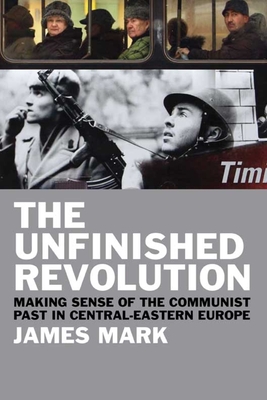

 Yale University Press
Yale University Press
The Unfinished Revolution: Making Sense of the Communist Past in Central-Eastern Europe


Key Metrics
- James Mark
- Yale University Press
- Hardcover
- 9780300167160
- 9.2 X 6.4 X 1.4 inches
- 1.63 pounds
- Political Science > Political Ideologies - Communism, Post-Communism & Socialism
- English
 Secure Transaction
Secure TransactionBook Description
While the West has repeatedly been sold images of a victorious people's revolution in 1989, the idea that dictatorship has been truly overcome is foreign to many in the former Communist bloc. In this wide-ranging work, James Mark examines how new democratic societies are still divided by the past.
Author Bio
I completed my BA in History, M.Phil. in Russian and East European Studies and a D.Phil. at the University of Oxford. I have worked in the History Department at Exeter since 2004.
Research Interests
I am currently working on a number of books:
1. (with Péter Apor) on the impact of the politics of decolonisation, peaceful co-existence, anti-imperialism, and market socialism on official and unofficial activist culture in late socialist Hungary.
2. (with Artemy Kalinovsky and Steffi Marung, (eds.) Alternative Globalistions. Eastern Europe and the Postcolonial World (Bloomington: Indiana University Press, 2019)
3. (with Ljubica Spaskovska, Tobias Rupprecht and Bogdan Iacob) 1989. A Global History of Eastern Europe (CUP, 2019)
4. (with Paul Betts, eds.) on Socialism Goes Global: Encounters between the Eastern Bloc and Decolonising World.
Over the past decade, I have published on the way in which history gets recast at moments of major political change, addressing the ways in which political elites, cultural institutions, institutes of memory, and ordinary people have contributed to the re-imagining of the past after the fall of Communism in eastern Europe after 1989. This resulted in: The Unfinished Revolution: Making Sense of the Communist Past in central-eastern Europe. It was shortlisted for the 2011 Longman History Today Book Prize, and chosen as one of the 'best books of 2011' by Foreign Affairs.
Source: University of Exeter
Videos
No Videos
Community reviews
Write a ReviewNo Community reviews